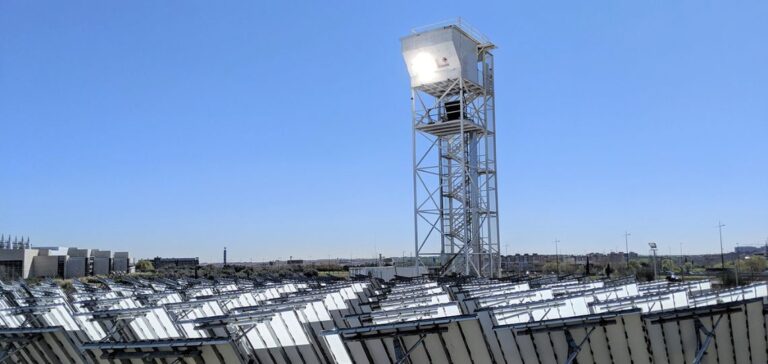Synhelion announces to raise 22 million Swiss francs of investment to boost CO2 capture to produce a fuel.
A CO2 capture process
Synhelion announced that the funds were provided by strategic investors including Swiss International Air Lines (SWISS). The proceeds of the investment cycle will accelerate the growth of the company. In addition, the funds will support the scale-up and commercialization of the company’s technology.
Synhelion uses solar heat to convert CO2 into synthetic fuels, called solar fuels. The solar radiation reflected by a mirror field is concentrated on a receiver. Thus the heat generated is evacuated to a thermochemical reactor producing a synthesis gas.
A thermochemical cycle converts a mixture of water and CO2 to produce carbon neutral fuels. It is a solution in the fight against climate change with the abandonment of fossil fuels. Synthetic fuel can be combined with the existing fuel network.
Important funding
Synhelion’s fuel is compatible with existing planes, cars, trucks and ships. The company was taking the final step to industrial production of sustainable solar fuels in August 2022. Thus, the company began the construction of DAWN.
It is the first industrial plant in the world to produce sustainable fuels using solar heat. Philipp Furler, CEO and co-founder of Synhelion, says:
“We have made tremendous progress this year. This round of financing and the commitment of our investors are a tremendous recognition of our performance, our success and our prospects. This investment will help us continue to significantly scale the business and accelerate the commercialization of our unique technology.”
The company is pleased to welcome renowned investors who believe in this technology such as Eni, SWISS or CEMEX.
SWISS and the Lufthansa Group are strategic partners of Synhelion. SWISS will thus be the first airline to use solar-powered jet fuel. Eventually, commercialization will be industry-wide.






















